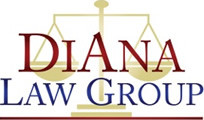Trust Administration
Help with Trust Administration for people in the East Bay, Oakland, and all of the San Francisco Bay Area – California

What is Trust Administration?
If you are reading this page it is probably because a parent or relative has died and they had the foresight to create a Trust to distribute their assets to their loved ones. The good news is that because of their foresight, the estate will likely not have to go through the court process called probate. Instead of going through the courts, the Trust is administered privately, almost always with the help of an attorney.
Trust Administration is basically the process of determining the assets of the person that died, called a “decedent”, protecting those assets during the process and making them productive, notifying all of the people, debtors, government agencies, and then once everything is done, transferring the assets to the rightful beneficiaries.
The process could be complicated but the good news is that Trust Administration is generally much faster than probate and far less expensive. However, it has to be done right or there will be problems for which you will be personally liable, assuming you are the successor trustee.
Who does the Trust Administration?
The Trust will name at least one successor trustee and often times will nominate alternate or successive trustees in case the first trustee cannot or will not act for some reason. Since you are reading this page, you may be the successor trustee. It is easy for our office to determine by once we have a copy of the Trust.
Does Trust Administration have to be done?
Yes — if the Trust Administration is not done, you will be in violation of California law and likely be in violation of the terms of the trust. In addition, the only way for the heirs and beneficiaries to receive the decedents gifts and assets as specified in the Trust, a Trust Administration has to be performed. Here again, don’t get overwhelmed by the details. We make the process quick and as easy as possible for you.
If you are reading this it is likely someone you love has died. Do you need to talk with us or have an emergency, call 925-953-2024 or click here.
Do I need an attorney to do the Trust Administration?
No — you can try to do the Trust Administration yourself but it is not recommended and very risky. The California Probate Code (Trust Code) is very long and very complicated. It starts with code §100 and ends with code §21700, not to mention all of the supplemental laws involved in performing a Trust Administration.
The short answer is you need an attorney to help you with the Trust Administration but the good news is the Trust generally pays for the Trust Administration so there are little to no out of pocket attorney fees to pay. Trying to do the Trust Administration yourself is like trying to operate on yourself. It does not work. It is risky because you as the person doing the Trust Administration has liability for hundreds of laws and situations.
Here is a short list of some of the ways you can be sued and held liable for mistakes or omissions:
- If you fail to properly secure and insure assets of the estate you will be held personally liable.
- If you cause the estate to lose value due to any improper or negligent act or omission.
- If you do not properly notify taxing authorities like the IRS and California State Franchise Tax Board and determine the decedents taxes owed. You will be personally liable for all taxes and penalties.
- If you do not properly publish notice in the newspaper of the decedents death and notice of administration of the estate, if the optional procedure is elected.
- If you do not properly notify all known or reasonably ascertainable creditors of the decedent. You will be personally liable for those unpaid debts.
- If you improperly sell, give away, discard or transfer property. You will be personally liable for damages.
- If you make any mistakes that cause damage or loss of value to the beneficiaries or heirs, you will be personally liable to the beneficiaries and heirs for the mistakes you make.
The internet is a wonderful tool but just like you can’t use it to operate on yourself, you will need help to probate and estate of your loved one and protect yourself from personal liability.
for a Free Quick Help Guide on the most common MISTAKES people make when doing Trust Administration and what you need to do in order to make the process go smoothly.
How long does it take to do the Trust Administration?
That depends on if the Trust is simple or complex. If the Trust is simple and the successor trustee (assume you) works with our office efficiently, most estates can be closed in as little as 4-5 months. Trust can’t be closed for a minimum of 4 months (practically speaking 5), because the law requires a certain amount of time before the Trust could be closed. If the Trust is complex, it will take longer. 90% of the Trust in the San Francisco Bay Area are simple to moderately complex so most Trust should be closed well under a year with simple estates much faster.
If you are reading this it is likely someone you loved died. Do you need to talk with us or have an emergency, call 925-953-2024 or click here.
How do I get my inheritance?
The reason for Trust Administration is to transfer the assets of a decedent to the decedents loved ones, usually beneficiaries or heirs. Once all of the Trust Administration has been done properly a final distribution agreement is provided to all of the beneficiaries stating what each person gets. If all are in agreement, then our office will prepare the paperwork to properly transfer the assets to the rightful beneficiaries. Sometimes there are disputes. In that case we try to work those disputes out in advance in order to avoid litigation. Once those disputes are worked out, our office will prepare the paperwork to properly transfer the assets to the rightful beneficiaries.
What if there are capital gains, do taxes have to be paid?
Yes — if the Trust had a capital gain on assets after the decedent died, the IRS will require capital gains tax to be paid. Here again, this is very complicated and you will need to reach out to our office to handle for you otherwise you will be personally liable for the taxes, penalties, and interest.
Should I be the successor trustee?
Yes — providing you are nominated as the successor trustee or the office is vacant. You are also entitled to reasonable compensation for your services. You may waive that compensation if you wish. In fact, if you are nominated as the successor trustee, you should act quickly to either accept the office or decline. Otherwise you could have liability for inaction.
As you can see, there is a lot to doing a Trust Administration but don’t be overwhelmed. We make the process as simple and easy as possible. We guide you through the process step by step and help you with each step along the way.
Click here for a Free Quick Help Guide on the most common MISTAKES people make when doing Trust Administration and what you need to do in order to make the process go smoothly.
Need to talk with a lawyer or have an emergency, call 925-953-2024 or click here.
What if you don’t have a copy of the Trust?
If you are a close relative like the spouse or child of the decedent, you should look though the decedents important papers for anything that says, “Trust”, “Living Trust”, “Revocable Living Trust”, or any variation thereof. If you think the trust is in possession of a friend or relative, as an heir to the decedent you have a legal right to a full and complete copy of the Trust and all amendments under California Probate Code §16061.7.
Please note, we provide links to the law for those that like to read but it is complicated and you do not have to read the law. We will handle everything for you!
Does Probate have to be done if the decedent had a Will?
No — providing the decedent had a Trust. There could be some complications where a probate, or summary probate, would have to be done but those are complications and not ordinary. Assume for now no probate needs to be completed.
What if the decedent died without a Will?
As long as the decedent had a Trust, they do not have to have a Will. A Will can enhance their estate plan but it is not necessary. Here again, if the decedent had a Trust, that is all you need to have the Trust Administration completed, generally speaking.
Do you need to talk with us or have an emergency, call 925-953-2024 or click here.
from our Trust Administration clients.
Help with Trust Administration
FREE CONSULTATION
Know the law.
Do it right.
Get help fast.
An attorney will call you within 15 minutes.
